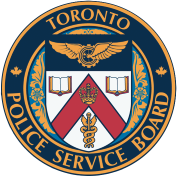
Closed Circuit Television (CCTV) Program
|
DATE APPROVED |
July 17, 2009 |
Minute No: P195/09 |
|
DATE(S) AMENDED |
November 15, 2010 |
Minute No: P292/10 |
|
DATE REVIEWED |
November 15, 2010 |
Minute No: P292/10 |
|
REPORTING REQUIREMENT |
|
|
|
LEGISLATION |
Police Services Act, R.S.O. 1990, c.P.15, as amended, s. 31(1)(c). Freedom of Information and Protection of Privacy Act, R.S.O. 1990, c. F. 31. Municipal Freedom of Information and Protection of Privacy Act, R.S.O. 1990, c. M.56. |
|
|
DERIVATION |
|
|
The use of closed circuit television (“CCTV”) in the public domain has increased significantly over recent years. CCTV can be a valuable tool as part of a comprehensive crime management plan to overtly observe public areas and detect and deter crime.
The use of CCTV provides a number of potential benefits for community safety. However, any program that includes the use of CCTV must also consider the privacy rights of individuals. In addition, it is important to recognize the need for members of involved communities to have meaningful and ongoing input into the use of CCTV in their neighbourhoods.
It is the policy of the Toronto Police Services Board that the Chief of Police will develop procedures governing the use of CCTV by the Toronto Police Service that:
- Include the rationale and objectives for the use of CCTV by the Service;
- Contain appropriate measures to ensure that individuals’ privacy and human rights are safeguarded;
- Recognize the importance of ongoing public consultation in the design, implementation and evaluation of the project through the use of a variety of mechanisms to gather feedback from the community;
- Ensure that all records and stored video related to the CCTV project are under the control of the Service;
- Establish a reasonable retention period for recorded images, having regard to investigative requirements as well as privacy concerns;
- Ensure that sufficient public notification is given before, during and after installation of any CCTV camera; and
- Provide for regular independent evaluation of the program.
human rights, community relations, privacy, equipment and uniform, technology